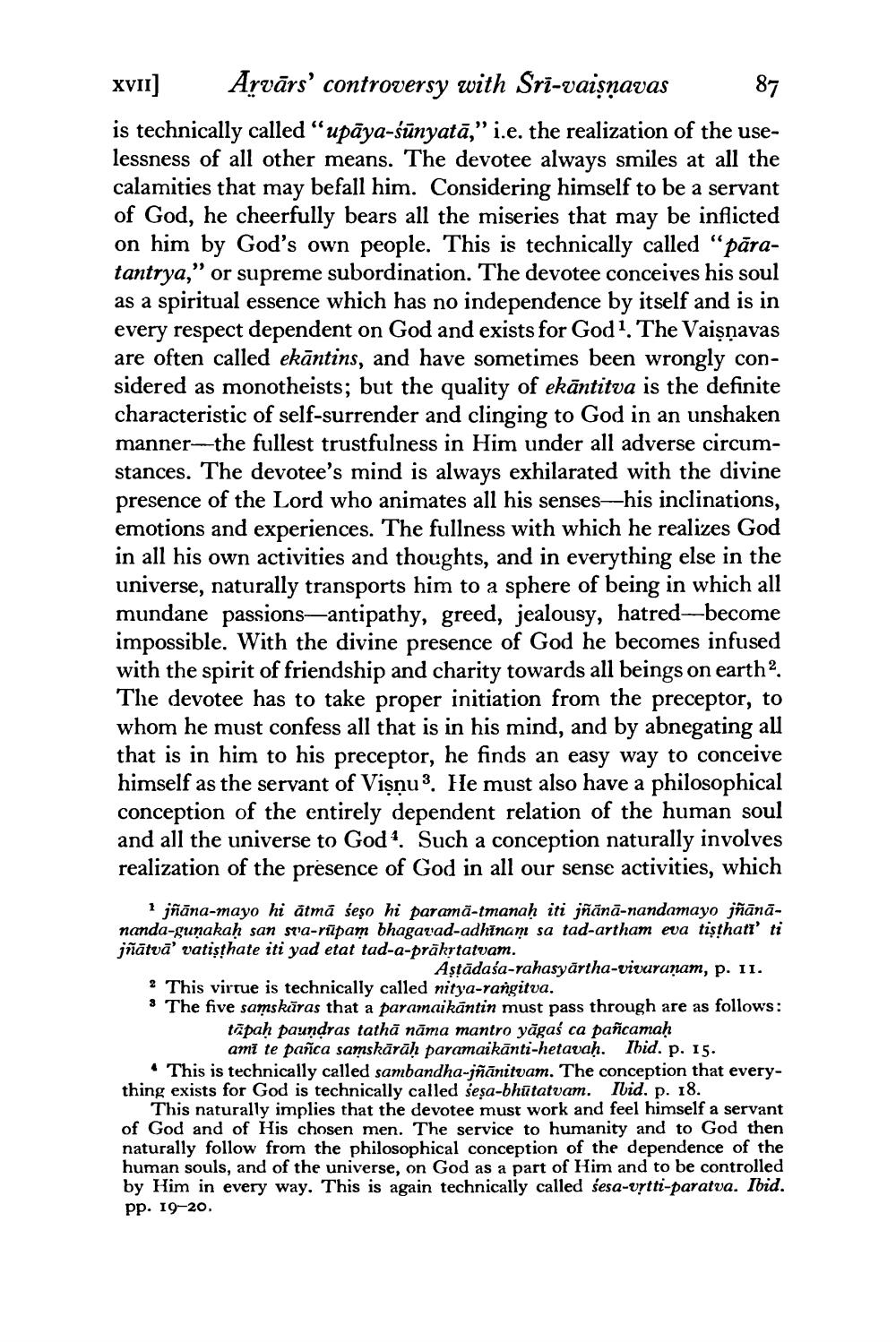________________
XVII]
Arvārs' controversy with Sri-vaiṣṇavas
87
is technically called "upāya-śūnyatā,” i.e. the realization of the uselessness of all other means. The devotee always smiles at all the calamities that may befall him. Considering himself to be a servant of God, he cheerfully bears all the miseries that may be inflicted on him by God's own people. This is technically called "pāratantrya," or supreme subordination. The devotee conceives his soul as a spiritual essence which has no independence by itself and is in every respect dependent on God and exists for God1. The Vaisnavas are often called ekāntins, and have sometimes been wrongly considered as monotheists; but the quality of ekāntitva is the definite characteristic of self-surrender and clinging to God in an unshaken manner-the fullest trustfulness in Him under all adverse circumstances. The devotee's mind is always exhilarated with the divine presence of the Lord who animates all his senses-his inclinations, emotions and experiences. The fullness with which he realizes God in all his own activities and thoughts, and in everything else in the universe, naturally transports him to a sphere of being in which all mundane passions-antipathy, greed, jealousy, hatred-become impossible. With the divine presence of God he becomes infused with the spirit of friendship and charity towards all beings on earth2. The devotee has to take proper initiation from the preceptor, to whom he must confess all that is in his mind, and by abnegating all that is in him to his preceptor, he finds an easy way to conceive himself as the servant of Viṣņu3. He must also have a philosophical conception of the entirely dependent relation of the human soul and all the universe to God1. Such a conception naturally involves realization of the presence of God in all our sense activities, which
1 jñāna-mayo hi ātmā śeşo hi paramā-tmanaḥ iti jñānā-nandamayo jñānānanda-gunakaḥ san sva-rupam bhagavad-adhinam sa tad-artham eva tişthat' ti jñātvā' vatiṣṭhate iti yad etat tad-a-prākṛtatvam.
Aṣṭādasa-rahasyārtha-vivaraṇam, p. 11.
2 This virtue is technically called nitya-rangitva.
3 The five samskāras that a paramaikāntin must pass through are as follows: tapaḥ paundras tathā nāma mantro yagaś ca pañcamaḥ ami te pañca samskārāḥ paramaikanti-hetavaḥ. Ibid. p. 15.
This is technically called sambandha-jñānitvam. The conception that everything exists for God is technically called seșa-bhūtatvam. Ibid. p. 18.
This naturally implies that the devotee must work and feel himself a servant of God and of His chosen men. The service to humanity and to God then naturally follow from the philosophical conception of the dependence of the human souls, and of the universe, on God as a part of Him and to be controlled by Him in every way. This is again technically called sesa-vṛtti-paratva. Ibid. pp. 19-20.




